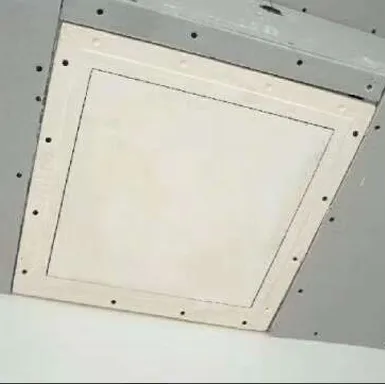- Afrikaans
- Albanian
- Amharic
- Arabic
- Armenian
- Azerbaijani
- Basque
- Belarusian
- Bengali
- Bosnian
- Bulgarian
- Catalan
- Cebuano
- Corsican
- Croatian
- Czech
- Danish
- Dutch
- English
- Esperanto
- Estonian
- French
- German
- Greek
- Hindi
- Indonesian
- irish
- Italian
- Japanese
- Korean
- Lao
- Malay
- Myanmar
- Norwegian
- Norwegian
- Polish
- Portuguese
- Romanian
- Russian
- Serbian
- Spanish
- Swedish
- Thai
- Turkish
- Ukrainian
- Uzbek
- Vietnamese
авг . 09, 2024 03:15 Back to list
Exploring Grid Systems for Effective Installation of Drop Ceiling Panels and Their Aesthetic Impact
Understanding Grid Covers for Drop Ceilings A Comprehensive Guide
Drop ceilings, also referred to as suspended ceilings, are a popular architectural choice in both commercial and residential settings. They serve various purposes, including concealing plumbing, wiring, and ducts while also enhancing acoustic performance and aesthetic appeal. One critical component of drop ceilings is the grid cover, which not only contributes to the ceiling's visual appeal but also plays a vital role in its overall functionality. This article explores the significance of grid covers for drop ceilings, their types, installation, and maintenance considerations.
What Are Grid Covers?
Grid covers are the structural framework that supports the ceiling tiles in a drop ceiling system. Typically made from metal, these grid systems create a suspended framework that holds ceiling tiles in place. The grid consists of main runners, cross tees, and wall angles, which work together to distribute the weight of the tiles evenly and maintain their integrity over time. Grid covers can also serve aesthetic purposes, adding a finished look to a space while allowing for easy access to above-ceiling utilities.
Types of Grid Covers
There are several types of grid covers available, each designed for specific applications and aesthetics. The most common types include
1. T-bar Grid System This is the most widely used grid type in both residential and commercial applications. Its T-shaped profile allows for various tile sizes and easy installation.
2. Snap-in Grid System This system allows for quick installation, as tiles snap directly into place without the need for additional clips or supports. This can save time during the installation process.
3. Traffic Systems Designed for high-traffic areas, these grid covers are more robust and are engineered to withstand heavier loads, making them ideal for environments where maintenance and safety are priority concerns.
grid covers for drop ceiling

4. Specialty Grids These grids offer unique designs and finishes, catering to specific aesthetics or functional needs. For instance, grids with integrated lighting can enhance the look of a ceiling while minimizing installation time.
Installation Considerations
Installing grid covers for drop ceilings requires careful planning and precision. Here are some key considerations for a successful installation
- Planning the Layout Prior to installation, it is crucial to plan the layout of the grid system. This includes determining the height of the ceiling, selecting the appropriate grid type, and ensuring that the layout accommodates lighting fixtures, vents, and other components.
- Tools and Materials Essential tools often include a level, measuring tape, chalk line, and wire cutters. Additionally, proper materials, such as the grid components and tiles, should be selected based on the specific requirements of the project.
- Adjustments for Utilities When installing the grid system, it is necessary to account for any existing utilities above the ceiling. Proper measurements and adjustments may be needed to navigate around plumbing or electrical wiring.
Maintenance of Grid Covers
Maintaining grid covers is vital for ensuring the longevity and performance of a drop ceiling. Regular inspections should be conducted to check for any damage, such as rusting of metal components or sagging tiles. Cleaning the grid system periodically helps maintain its appearance and can be done using mild cleaners and a soft cloth.
In summary, grid covers for drop ceilings are essential components that provide both support and aesthetic value. By understanding the types of grid systems available, installation best practices, and maintenance considerations, homeowners and contractors can ensure that their drop ceilings remain functional and visually appealing for years to come. Whether for a new construction project or an existing renovation, investing in quality grid covers is a decision that will pay off in both performance and aesthetics.
-
PVC Laminated Gypsum Ceiling Board OverviewNewsApr.11,2025
-
Mineral Fiber Ceiling Tiles Price Analysis and ComparisonsNewsApr.11,2025
-
Crafts of Mineral Fiber Ceiling Tile ManufacturingNewsApr.11,2025
-
Difference Between Gypsum and PVC CeilingNewsApr.11,2025
-
An Overview of Mineral Fiber Ceiling TilesNewsApr.11,2025
-
Advantages of PVC Gypsum CeilingNewsApr.08,2025







